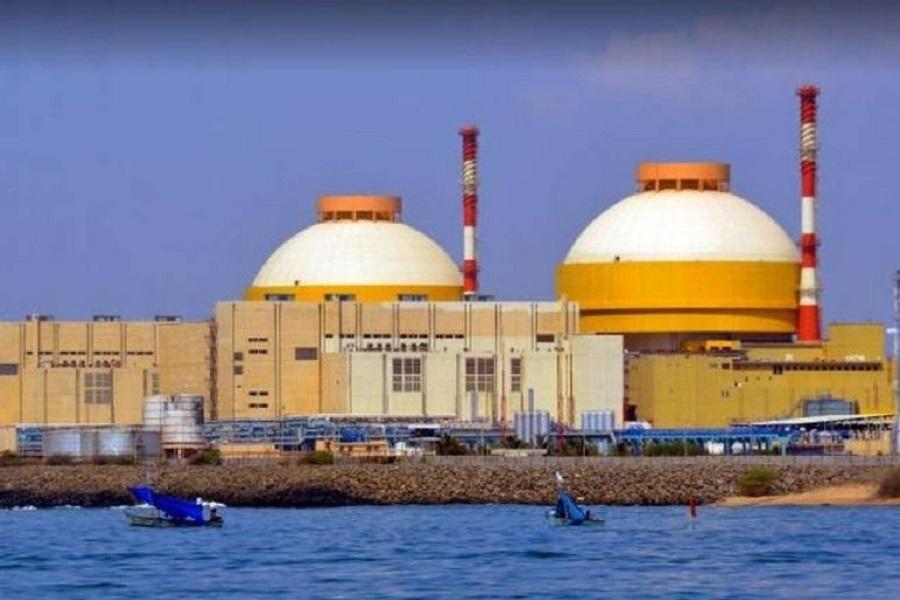
Centre Reviews 100 GW Nuclear Mission to Boost Clean Energy Goals
India has set its sights on achieving a significant milestone in the field of clean energy, and the country is taking concrete steps to make it a reality. The Union Power Minister, Manohar Lal Khattar, and the Minister of State for Atomic Energy, Dr. Jitendra Singh, recently convened a high-level meeting to discuss the 100 GW Nuclear Energy Mission. This meeting was a follow-up on Prime Minister Narendra Modi’s ambitious target of expanding India’s clean energy basket and reaffirms the country’s commitment to achieving Net Zero emissions.
The meeting aimed to outline key directives and strategies to achieve the 100 GW nuclear energy goal, which is a crucial component of the country’s clean energy plans. The meeting brought together key stakeholders, including officials from the Ministry of Power, Ministry of New and Renewable Energy, and the Department of Atomic Energy.
The 100 GW Nuclear Energy Mission is a significant step forward in India’s transition to a low-carbon economy. Nuclear energy is a clean and reliable source of power that can play a vital role in reducing the country’s dependence on fossil fuels and mitigating climate change. The mission is expected to not only reduce India’s carbon footprint but also create new job opportunities and stimulate economic growth.
The meeting focused on several key areas, including the development of new nuclear power projects, the enhancement of nuclear safety and security measures, and the promotion of nuclear energy research and development. The officials also discussed the need for a coordinated approach to achieve the mission’s objectives and the importance of inter-ministerial cooperation.
One of the key outcomes of the meeting was the decision to set up a high-powered committee to oversee the implementation of the 100 GW Nuclear Energy Mission. The committee will be responsible for monitoring progress, identifying challenges, and providing guidance to ensure that the mission’s objectives are met.
The committee will also explore ways to address the challenges associated with nuclear energy, including public perception, environmental concerns, and safety and security risks. The committee will work closely with stakeholders, including nuclear power plant operators, equipment manufacturers, and research institutions, to ensure that the mission is implemented effectively and efficiently.
The 100 GW Nuclear Energy Mission is a critical component of India’s clean energy plans, and its successful implementation will have far-reaching benefits for the country. The mission will help India reduce its dependence on fossil fuels, mitigate climate change, and create new job opportunities.
In addition, the mission will also promote the development of new technologies and innovations in the nuclear energy sector. This will not only reduce the cost of nuclear energy but also enhance the country’s energy security.
The Centre’s efforts to boost clean energy goals through the 100 GW Nuclear Energy Mission are a significant step forward in India’s transition to a low-carbon economy. The mission is expected to play a vital role in reducing the country’s carbon footprint and achieving its ambitious clean energy targets.
As the country moves forward with the implementation of the 100 GW Nuclear Energy Mission, it is essential to address the challenges and concerns associated with nuclear energy. This includes ensuring public trust, addressing environmental concerns, and promoting a culture of safety and security.
In conclusion, the Centre’s review of the 100 GW Nuclear Energy Mission is a significant step forward in India’s transition to a low-carbon economy. The mission is expected to play a vital role in reducing the country’s carbon footprint, creating new job opportunities, and promoting economic growth.
The successful implementation of the 100 GW Nuclear Energy Mission will require a coordinated approach from all stakeholders, including the government, nuclear power plant operators, equipment manufacturers, and research institutions. With careful planning, effective implementation, and a commitment to achieving the mission’s objectives, India can achieve its ambitious clean energy targets and become a global leader in the transition to a low-carbon economy.
Sources:






